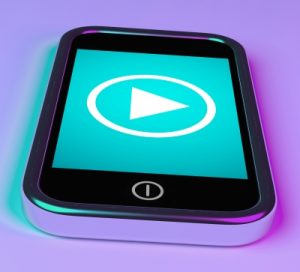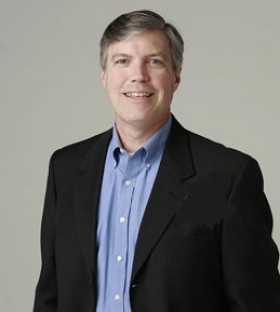 A funny thing happened on the way to marketing’s obsession with branded video. At the same time (probably prior), a battle also started raging to capture ears with audio-only entertainment and information. And it’s a good thing each one of us has two of them, because the options for audio content are exploding.
A funny thing happened on the way to marketing’s obsession with branded video. At the same time (probably prior), a battle also started raging to capture ears with audio-only entertainment and information. And it’s a good thing each one of us has two of them, because the options for audio content are exploding.
Given that, it might be worth looking at the dynamic between the granddaddy of free audio entertainment, radio, and the revolution in on-demand audio, podcasting. Without question, both enter the arena armed with plenty of bragging points.
- Nobody outdoes radio in terms of reach. 93% listen to AM/FM radio over the air, that’s higher than TV (85%), PC’s (50%), smartphones (74%), and tablets (29%).
- 265M Americans 6+ listen to the radio each week. That includes 92% of Millennials, 95% of Gen X (interestingly, that’s one point more than Boomers), 97% of Hispanics and 92% of African Americans.
- Audio consumers are listening to radio over 12 hours a week.
- News/talk/information is the 2nd most popular format, capturing 11% of listeners 12+.
- 80 million people, 33% of us, aged 12+ have listened to a podcast.
- 17% of American 12 and over listen monthly.
- 10% listens to a podcast an average 6 times a week.
- 64% of listeners bought a product they heard advertised on a podcast.
- People who listen to podcasts listen an average 2 hours per day.
To get a sense of whether radio should take lessons from podcasting, or if podcasters should seek out what’s been learned in radio over the course of decades, we talked to Walter Sabo of Sabo Media. Today, among other things, he connects brands with big web video stars. But he’s run NBC owned and operated radio stations, where he pioneered this crazy new format called Adult Contemporary, and the ABC Radio Networks, discovering legends like Dr. Ruth and Sally Jessy Raphael. Sabo Media was also the first to successfully program talk on FM for younger audiences.
Q: So, does broadcast radio still feel like podcasting is the enemy or the competition?
A: Actually, broadcasters simply view it as a curiosity, not an enemy at all and certainly not competition. They view it as another potential platform to monetize.
Q: As strong as podcasting has gotten, it still pales to broadcast radio in terms of listener reach. Why?
A: Largely mechanics. Most people have no idea how to find or download the apps and hear the podcast. Not everyone has a smartphone and not every one can “work” it. Do not minimize the challenge to many MAJORITY adopters of this technology. Regarding content, it’s like fudge. Fudge is a great idea for the first few bites. Podcasts that are highly focused by topic may represent “a little is enough…100 more seems daunting and unnecessary.”
Q: Who’s driving the launching of podcasts at radio stations; the group owners? The station execs? Or is the talent taking that initiative on their own?
A: It is not a priority. Podcasts are, due to time and labor constraints, an afterthought. One programmer running 5 stations really has enough to do. Some talent takes the initiative.
Q: What do you think podcasting gives you that broadcast radio can’t? What are its advantages?
A: Two advantages. There are no time rules. It can be as short or long as the topic requires. There are no content rules. Say what you want. Those are HUGE advantages.
Q: So with years of exposure to what does and doesn’t work when entertaining the public with audio, what do you think podcasts are generally doing right and wrong?
A: What they are doing right is experimenting and they should experiment more. They are giving INTERNATIONAL audience access to people who did not seek careers in radio or who could not get an “in” at a radio station.
Q: What’s the biggest quality mistakes most podcasts you’ve heard are making that keeps them from sounding “professional”?
A: I don’t think podcasts or online video should strive to be slick and professional. That’s covered. They should be sloppy, authentic entertainment. Don’t edit, just go. The only thing that has to be professional is the mic. The listener needs to be able to hear the podcaster. They need to learn how to talk into a mic.
Q: From a talent performance perspective, if you could grab all podcast talent by the shoulders and tell them 3 things that would improve their shows immensely, what would they be?
A: Shorten them. Invest in the best mics and learn how to use them. Before you record and post, ask the question, “Who cares?”
Q: Podcasting is becoming a premium ad product because there’s a trusted host who knows their audience intimately and who’s built a genuine relationship with that audience. If that works, why is broadcast radio moving away from letting hosts do that same thing?
A: I don’t think either is true. Most of the ad dollars for podcasts are coming from “experimental budgets.” Even if it’s a successful experiment, that money is not coming from media buying agencies, it’s coming from brands direct and PR firms. At the end of the experiment, the money will probably move on to the next experiment. I am not aware of a movement to push AM/FM hosts away from having a genuine relationship with their listener.
Mike Stiles is the proprietor of Brand Content Studios.




Leave a Reply
You must be logged in to post a comment.